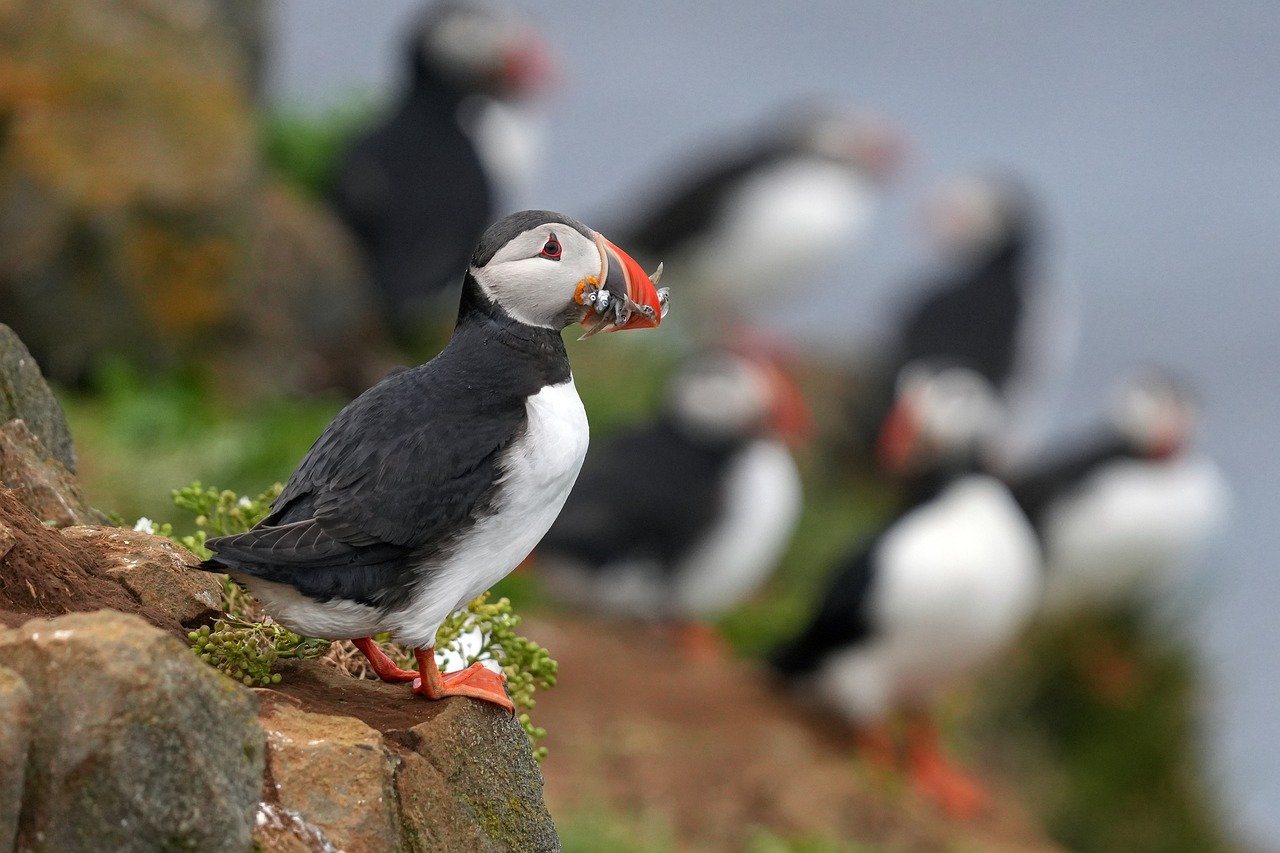About the Atlantic Puffin

The Atlantic Puffin (Fratercula arctica), also known as the common puffin, is a species of seabird in the auk family. These charismatic birds are often called "sea parrots" or "clowns of the sea" due to their colorful beaks and comical waddle. Puffins are found along the coasts of the United Kingdom, particularly in Scotland, Northern Ireland, and parts of England and Wales.
These small birds play a significant role in the UK's coastal ecosystems and are a popular attraction for wildlife enthusiasts and tourists alike. Their presence on coastal cliffs and islands adds to the rich biodiversity of the British Isles.
Fascinating Facts about Atlantic Puffins
Appearance
Puffins have a distinctive black and white plumage, with a large, colorful beak that turns bright orange, blue, and yellow during the breeding season.
Diet
They primarily feed on small fish such as herring, hake, and sand eels. Puffins can carry multiple fish in their beaks at once, sometimes holding up to 60 small fish!
Habitat
Puffins spend most of their lives at sea, only coming to land to breed. They nest in burrows on coastal cliffs or on offshore islands.
Breeding
Puffins are monogamous and often return to the same nesting site year after year. They typically lay a single egg, which both parents incubate.
Swimming Skills
Despite their awkward appearance on land, puffins are excellent swimmers and can dive up to 60 meters deep to catch fish.
Lifespan
Atlantic Puffins can live for over 20 years in the wild, with some individuals recorded living up to 30 years.
Where to See Puffins in the UK
If you're keen to spot these charming birds in their natural habitat, here are some of the best places to see puffins in the UK:
- Farne Islands, Northumberland: One of the largest puffin colonies in England.
- Skomer Island, Pembrokeshire: Home to thousands of puffins during the breeding season.
- Isle of May, Firth of Forth: A National Nature Reserve with a significant puffin population.
- Lundy Island, Devon: Known for its diverse wildlife, including a growing puffin colony.
- Shetland Islands: Various locations across the islands host puffin colonies.
- Orkney Islands: Several spots to observe puffins, including Westray and Papa Westray.
The best time to see puffins is typically between April and August, during their breeding season when they come ashore.
Conservation Status
Atlantic Puffins are currently listed as "Vulnerable" on the IUCN Red List. They face numerous threats, including:
- Climate change affecting their food sources
- Overfishing reducing available prey
- Pollution, particularly oil spills
- Introduced predators on breeding islands
Conservation efforts are ongoing to protect puffin populations and their habitats. These include managing breeding sites, regulating fishing practices, and conducting research to better understand and address the challenges these birds face.